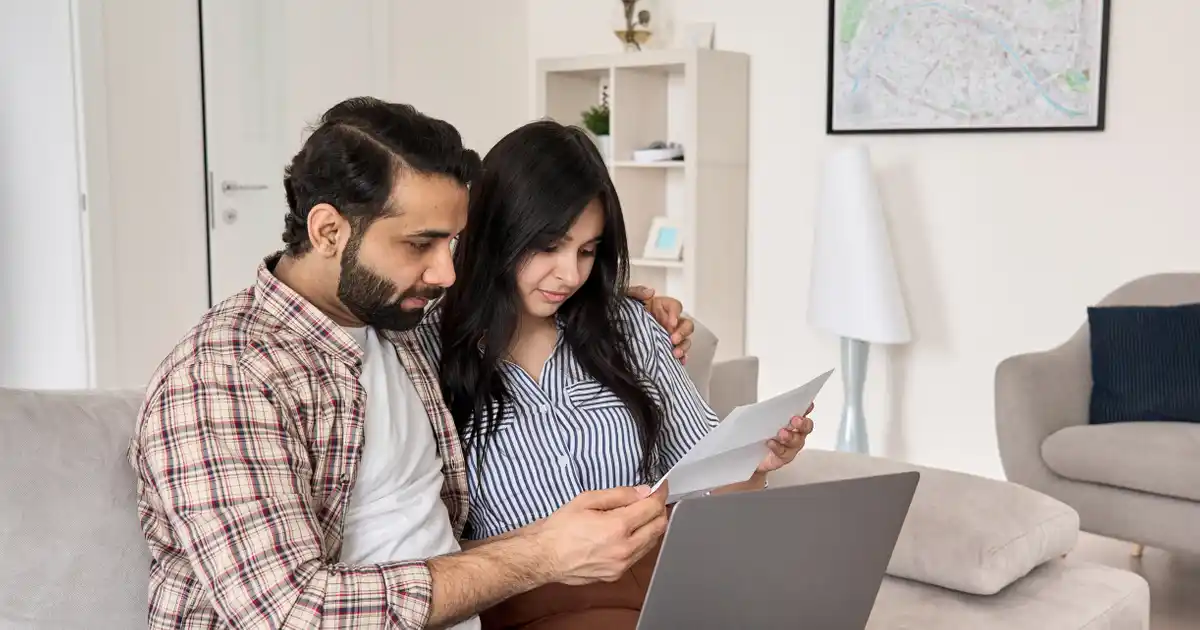Common-law marriage has been practiced in the United States since the 1870s. The rules are still applied to any unmarried couples living together that meet certain conditions. If you’re thinking of moving in with your partner, that’s great. However, there are definitely some things you need to be aware of before you start pooling assets or sharing debt. This article will familiarize you with the legal and financial aspects of common-law marriage. In particular, your annual income tax returns will look quite different than they used. The good news, though, is that common-law partners can often save money by filing a joint return.
What Is Common Law Marriage?
When a couple lives together for a while and presents themselves as a married couple to their family, friends, and community, the relationship is a common-law marriage. In this form of relationship, a formal wedding ceremony doesn’t take place. The couple is not issued a marriage license.
To most people, common law marriage may appear to be an archaic form of marriage. However, it exists in various forms across ten states and the District of Columbia. Five additional U.S. states practice common law marriage, but with some restrictions.
There are certain requirements a couple needs to meet to validate a common-law marriage. These requirements apply to most of the states where it is practiced. They may vary slightly from place-to-place, but common requirements include the following:
 Shutterstock
ShutterstockLiving Together
The couple must live together for a period set by the state. It’s often 12 months.
Legal Right to Marry
The couple should have the legal capacity to marry, if they so choose. That means:
- Each of the partners should be 18 years old or above;
- Each of the partners should have the mental capacity to understand the legal framework, and;
- Both partners should be currently unmarried.
Plans to Get Married in the Future
The couple bound by the legal framework must intend to get married in the future to validate common law marriage.
Hold Out as a Married Couple
Common law partners should hold out as married to the public. This includes:
- Having the same last name;
- Referring your partner as husband or wife in public, or;
- Using a joint credit card and holding joint bank accounts.
 Shutterstock
ShutterstockHow to File a Tax Return as a Common Law Partner?
You need to mention on your tax return if your relationship meets the definition of a common law marriage. Both of the common law partners must file their own tax returns with Internal Revenue Service (IRS).
Apart from their personal information, they need to mention the name of their common-law partner, their net income, and social insurance number on their tax return. The IRS will calculate the benefit amounts and tax credits a common law couple is eligible for, based on their combined household income.
Will Separation Affect Your Taxes?
Yes, it does. Common law partners need to be apart for a set period to be officially considered separated by IRS. This is quite similar to the rules of separation (and then divorce) for officially married couples.
Each partner gets to claim a certain portion common law partner amount. This amount is calculated when the tax return is filed for the year of separation.
 Shutterstock
ShutterstockThe Benefits of Filing Tax as a Common Law Couple
From combining medical expenses or charitable donations, to claiming a family tax cut for maximizing your credit, there are various benefits of filing your tax return as a common law couple. You can contribute to your own retirement savings, and also claim spousal and common law partner amounts (if your partner earned less than a certain amount the following year).
If you meet your state’s definition of a common law couple, you can get the following benefits:
Social Security Incentives
Common law partners can receive one another’s social security benefits. According to spousal benefit rules, a common law couple has to prove the number of years they have lived together to be eligible to receive these benefits on their partner’s behalf.
Employer Benefits
By filing a joint tax return, common-law partners can use employer benefits for their spouses. Let’s suppose you don’t have health insurance, while your common law partner is covered by their employer. Being their common law partner gets your health insured under their plan.
 Shutterstock
ShutterstockTax Deductions
When you file your tax return as a common law couple, you are entitled to various tax deductions. These deductions cover married and common law couples. For example, you get a mortgage interest deduction if you own a house with your common law spouse. Moreover, if you have children together, you can claim even more credits or deductions.
Estate Planning Benefits
In the United States, gift tax exemption applies to a married couple. Common law couples can also take advantage of estate planning benefits. Based on the federal estate tax limit, common law couples can receive an unlimited marital exemption from estate planning by filing a tax return as common law partners. Inheritance law decides how the property will be distributed in case one of the common law partners dies without a will. (Expert Tip: Don’t die without a will.)
What Happens If You Don’t Tell The IRS?
If you are a common law partner, you must file your tax return as one. Otherwise, you can be held accountable for fraudulent tax returns. The IRS will likely find out about your inaccurate tax returns. You may also have to face severe consequences if that happens, including:
- Reassessment of unpaid taxes and interests;
- Penalties, and/or;
- No pension survivor benefits.
 Shutterstock
ShutterstockThe Bottom Line
Common law marriage is fairly common in most of the United States. Thousands of couples chose to not get legally married, for a variety of reasons — religious, financial, or otherwise. However, the IRS still treats these relationships on par with legally married ones. When you file as a common law partner, you are eligible for all the legal benefits that married couples get. Contact a financial advisor before you decide to file tax returns as a common law partner. This will help you manage taxes individually and as a couple.








